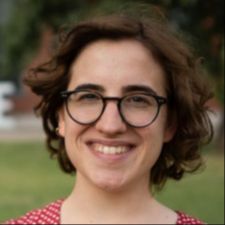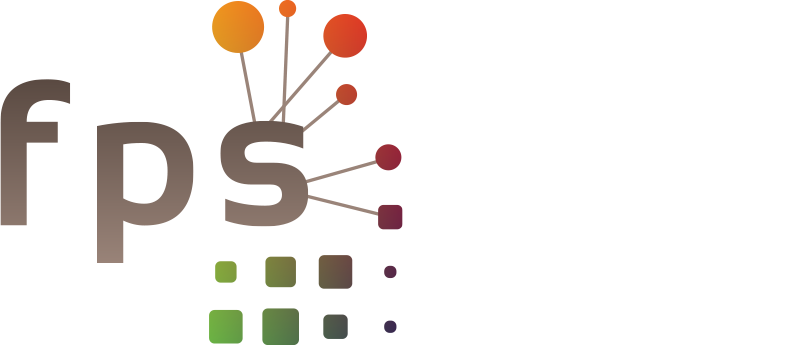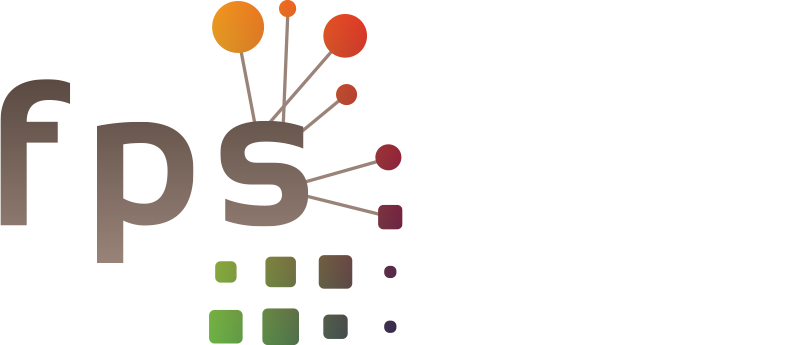
Gabriella Gellen
University of Cergy-Pontoise | Institut Pasteur
Postdoctoral researcher
I would like to express my gratitude to FPS for giving me the opportunity to attend the HUPO 2024 World Congress in Dresden, Germany, from 20–24 October 2024. The conference brought together over 1,800 participants from around 50 countries, with 28 sessions and more than 1,100 abstracts. It offered many opportunities to expand my understanding across all areas of proteomics and learn from renowned researchers, including Neil Kelleher and Matthias Mann.
I was honoured to contribute to the conference as a co-chair of the Structural Proteomics and Protein Structure Prediction session, alongside Juri Rappsilber. This was my first time serving as a chair at a conference, and I approached it with a mix of excitement and nervousness. It was a remarkable opportunity to practice public speaking in front of the structural proteomics community. Overcoming my initial apprehensions about addressing such a large audience allowed me to connect meaningfully with the speakers, who are pioneers and peers in the field.Additionally, during the Structural Biology lunch symposium, I had a fruitful discussion with Kish Adoni from the Institute of Structural & Molecular Biology at UCL in London. We explored the potential of combining cross-linking, ion-mobility separation and top-down mass spectrometry for studying disordered proteins. From these conversations promising collaborations and novel approaches may arise for the development of protein structure research.
The extensive poster sessions were another highlight of the congress, offering many opportunities for engaging conversations with colleagues from around the world, from the Czech Republic to the USA, particularly in the areas of structural proteomics and chemical biology. Moreover, the poster presentations of HUPO & EuPA initiatives, like the YPIC (Young Proteomics Investigators Club) and HUPO ECR Committee, provided me new information on how to get advice and mentoring for career development, as well as how I can help younger generations in the field.
Beyond the scientific content, the conference included unique mentoring sessions addressing mental health questions and workplace conflicts. At the FeMS+ and Moms in Proteomics networking event, I connected with fellow women in academia and industry, sharing our experiences in managing work-life balance, advancing our careers, and navigating financial challenges. These roundtable discussions were particularly impactful, as they underscored the shared struggles many of us face—short-term contracts, frequent relocations through countries or even continents, and the challenges of aligning academic demands with family life. Fellowships and grants, in general, are not compatible with family planning timelines (i.e., for one fellowship, you may not have enough experience, while for another, you may be considered too old. You are expected to have children at a specific stage in your life; otherwise, your application may not be accepted). Such open conversations revealed that we are not alone, even though it often feels that way when comparing ourselves to curated depictions on platforms like LinkedIn.
These discussions also disclosed broader issues within the academic system, which still operates in ways that are not always supportive of women. By raising awareness and supporting one another, we can advocate for changes that make the system more inclusive. Initiatives like FeMS+ awards, mentorship programs, and networking opportunities, such as those offered at this conference, are essential. They enable us to share strategies, secure visibility, and empower the next generation with the knowledge needed to navigate these challenges effectively.
By actively nominating peers for awards, sharing information about opportunities, and mentoring younger colleagues about the intricacies of academic pathways, we can contribute to a more equitable and supportive scientific community. These efforts are vital for shaping an environment where everyone can thrive and reach their full potential.




